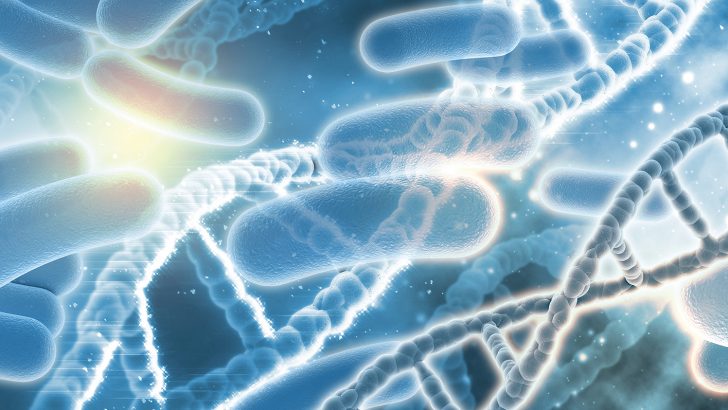Medical Matters
Hippocrates is credited with the ancient quote that ‘all disease begins in the gut’. While modern medicine casts a different light on factors underlying most diseases, recent research has highighted the complex and interesting role our gut may play when it comes to general health.
But how exactly might the gut influence this? In addition to processing food and nutrients and excreting waste, up to 70% of our immune system is housed here and it’s also home to about 100 trillion microbes that have a wide range of functions.
Gut bacteria are required for the breakdown of plant derived carbohydrates we can’t digest. Through a fermentation reaction they produce short chain fatty acids (SFA’s) such as acetic and butyric acid which are a fuel source for gut cells as well as other bacteria that may protect against disease. These acids can also suppress inflammation, modulate the immune system and play a role in releasing hunger suppressing hormones that may be important in regulating weight. Futhermore, they promote glucose use by the gut and liver which may help stave off diabetes. In fact, studies show that a higher production of these fatty acids correlates with lower diet-induced obesity and reduced insulin resistance.
Bacteria are also involved in many other metabolic reactions. For example, they act on bile acids making them less effective at breaking up fats and so may regulate energy intake. They also produce trimethylamine from compounds in dairy and meat which is metabolised in the liver to the TMAO – a chemical strongly associated with risk of hardening of the arteries. In fact, in a study of 4007 people those with the highest TMAO levels had 2.5 times the risk of cardiovascular disease and levels in diabetics also predicted vascular events independent of blood sugar control.
Gut microbes are also involved in the activation of anti-oxidants and anti-inflammatory compounds like polyphenols found in foods such as fruit, vegetables, cereals and coffee. They also metabolise the amino acid trpytophan to 5HT, the precursor to serotonin which is the chemical that antidepressants increase. While this might only have local effects, there is two way traffic between the brain and the gut via the vagus nerve which constitutes the “gut brain axis” .
There are five main groups of bacteria in the gut but there are many more species and the relative proportion of each can vary. In general, microbial diversity is generally a good indicator of a “healthy gut’. But what factors affect this?
Studies suggest that diet explains about 10% of the variation. For example, enrichment of gut microbes has been associated with diets where there is a good intake of fruit, vegetables and fibre whereas western diets are associated with reduced biodiversity. Dietary fibre has been shown to reduce insulin resistance with clear links to a shift in gut microbiota and increase in beneficial metabolites such as butyric acid. Vegans and vegatarians also have a different bacterial profile in the gut and it may also be affected by smoking, alcohol and artificial sweeteners.
What’s often overlooked is the effect of medications. In particular, broad spectrum antibiotics can knock out a lot of good bacteria. Indeed, Clostridium difficile colitis can result from antibiotic use and in more difficult cases can be treated with a ‘faecal transplant” replenishing healthy bacteria. However, other drugs such as proton pump inhibitors used for acid reflux as well as laxatives can also alter gut bacteria.
Ethnicity and/or genetics may also play a role. A recent study in Ireland found that Travellers have a gut microbiome which differs strikingly from that of the non-Travellers. In fact, Travellers had an ancient “non-industralised” type profile. However, in those who had adapted to a more settled lifestyle it was similar to the “industrialised” type that is associated with disease.
But how might altered gut bacteria affect me? An abnormal change in gut microflora may contribute to obesity, diabetes and intestinal disorders eg colitis, colorectal cancer and irritable bowel syndrome. Indeed, most studies of overweight people reveal a lower gut biodiversity which has also been found in longterm care residents and in those with bowel disorders. Long term weight gain (over 10 years) has also been correlated with low microbiota diversity and differences in microbial composition also influences glucose repsonse to foods as well as to some chemotherapy and immunotherapy.
Can I do anything to optimise gut microflora? In general, a diet with adequate fibre promotes a good mix of gut bacteria. Eating yogurts might also be beneficial. Probiotics (supplement that contain live bacteria) have been found to reduce bowel complaints but some may not establish properly and more studies are needed to determine which species and doses are optimal. Prebiotics are food components that we can’t digest but can promote bacterial growth though studies are limited. Importantly, the food we eat and it’s interaction with bacteria in the gut may play an important role in several diseases.
Dr Kevin McCarroll is a Consultant Physician in Geriatric Medicine, St James’s Hospital, Dublin.


 Dr Kevin McCarroll
Dr Kevin McCarroll
